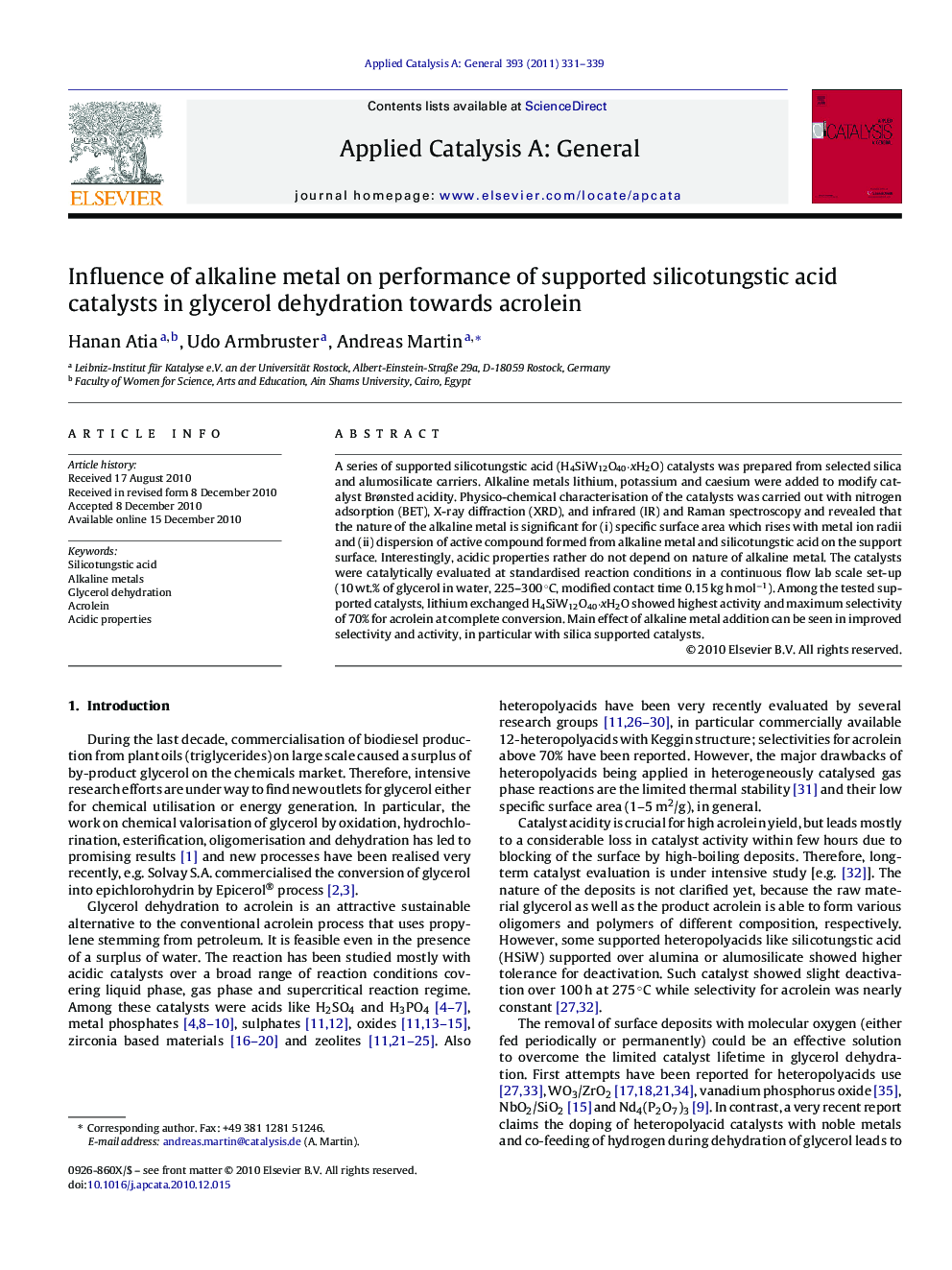| Article ID | Journal | Published Year | Pages | File Type |
|---|---|---|---|---|
| 41774 | Applied Catalysis A: General | 2011 | 9 Pages |
A series of supported silicotungstic acid (H4SiW12O40·xH2O) catalysts was prepared from selected silica and alumosilicate carriers. Alkaline metals lithium, potassium and caesium were added to modify catalyst Brønsted acidity. Physico-chemical characterisation of the catalysts was carried out with nitrogen adsorption (BET), X-ray diffraction (XRD), and infrared (IR) and Raman spectroscopy and revealed that the nature of the alkaline metal is significant for (i) specific surface area which rises with metal ion radii and (ii) dispersion of active compound formed from alkaline metal and silicotungstic acid on the support surface. Interestingly, acidic properties rather do not depend on nature of alkaline metal. The catalysts were catalytically evaluated at standardised reaction conditions in a continuous flow lab scale set-up (10 wt.% of glycerol in water, 225–300 °C, modified contact time 0.15 kg h mol−1). Among the tested supported catalysts, lithium exchanged H4SiW12O40·xH2O showed highest activity and maximum selectivity of 70% for acrolein at complete conversion. Main effect of alkaline metal addition can be seen in improved selectivity and activity, in particular with silica supported catalysts.
Graphical abstractFigure optionsDownload full-size imageDownload high-quality image (25 K)Download as PowerPoint slideResearch highlights▶ Glycerol reacts towards acrolein with high yield over supported silicotungstic acid. ▶ Catalyst performance is linked to acidic properties and phase behaviour. ▶ Alkaline metals (Li, K, Cs) modify catalyst acidity and dehydration performance. ▶ Catalyst preparation sequence has a strong impact on activity and selectivity.
